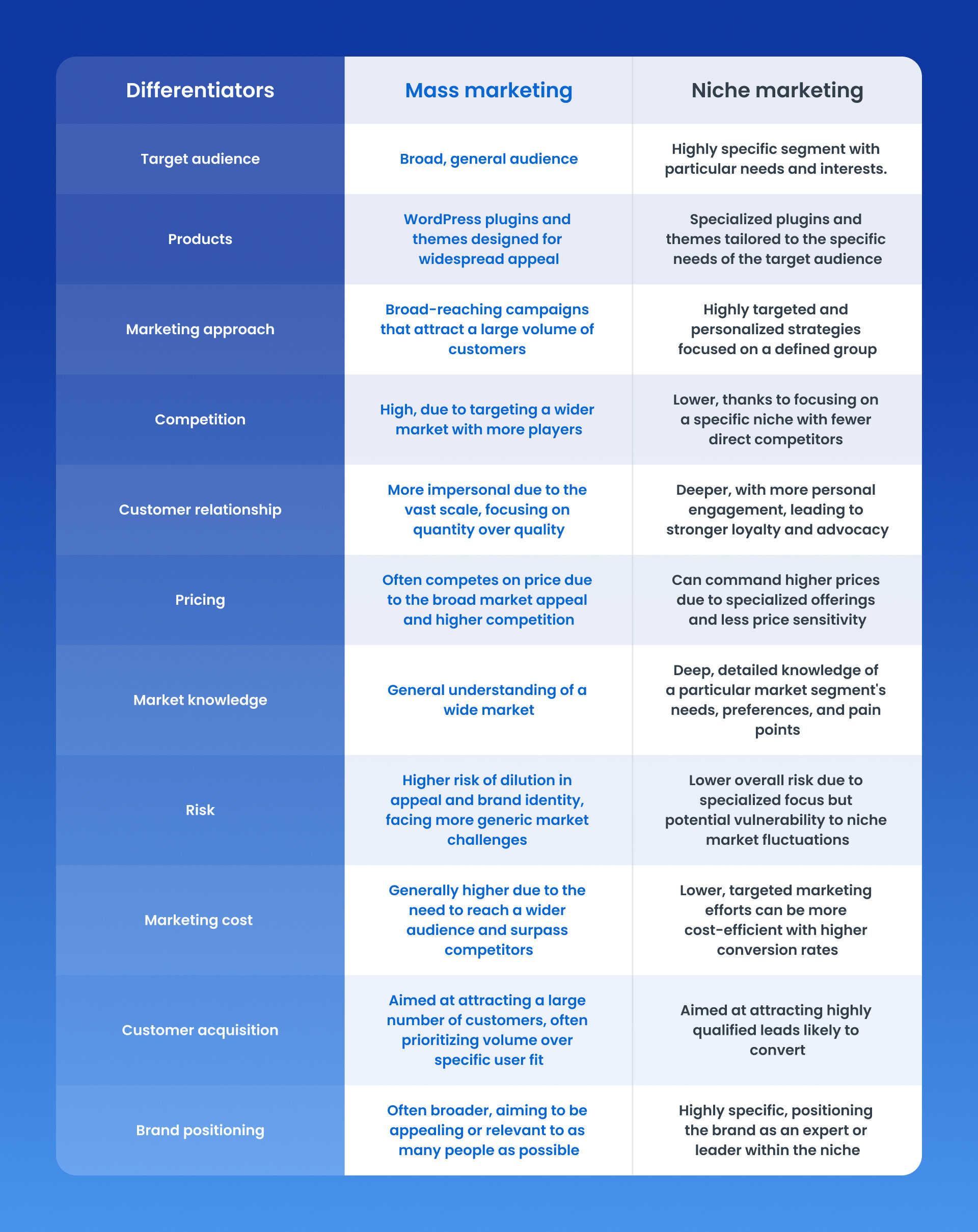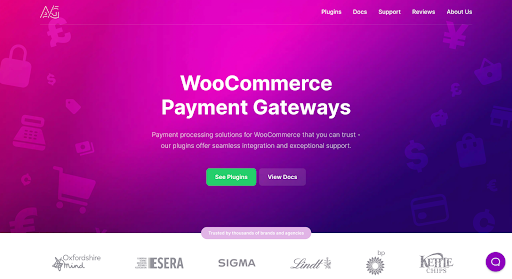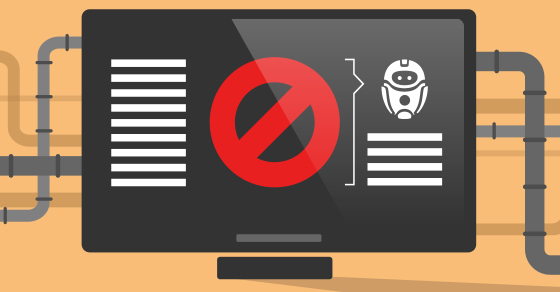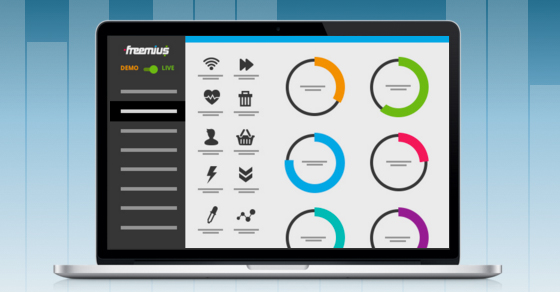|
|
The WordPress market is overflowing with fantastic products. Competition is fierce in every niche imaginable, so — naturally — trying to enter with a new solution and winning over customers will feel like running up a hill in clown shoes.
Sure — with persistent effort, you’ll reach your destination eventually. But at what cost?
To avoid this nightmarish scenario of flapping hopelessly uphill like a confused frog 😉, you need to strategically plan your product’s rollout and promotion from day one.
One of the first (and most vital) things you have to decide is whether you want broad exposure or prefer to hone in on a specific niche. Are you looking to cast a wide net and catch as many users as possible, or do you want to use a narrower approach to grab the attention of a specific audience segment?
Making the right choice can make or break your product’s success, but fear not. We’re here to assist by showing you how to correctly identify your product’s target market + how to decide between mass appeal or opting for a niche.
What Are Mass-Market Plugins and Themes?
In the WordPress ecosystem, targeting the mass market means creating plugins and themes for the broadest possible audience. These versatile and user-friendly products cater to various needs—from SEO and image compression to monetization—without being tailored to any specific group’s demands.
With the mass market, the goal is clear: offer a solution so universal that any WordPress user finds value in it regardless of their specific niche or technical skill level.
Here’s a real-life example from the WordPress space. Jetpack is a WordPress plugin that deploys a mass marketing strategy to reach new users. Its goal is to get on as many websites as possible, with relatively low concern over who installs the plugin. Their banner image looks generic, without any technical details that would appeal to a particular audience segment.
WordPress offers so many options, and to capture the mass market, a product must meet a wide range of needs but also have great functionality, design, and user experience (UX). The products that stand out and have a lasting impact are the ones that become indispensable, appealing to a broad spectrum of users, transcending niche boundaries.
What Are Niche WordPress Plugins and Themes?
A niche market is all about specialization.
In niche markets, developers create plugins or themes for a specific group’s needs or preferences. For example, a plugin designed exclusively for event organizers or a theme suitable for eCommerce brands.
Advanced Custom Fields is a real-world example of a niche WordPress product. It targets a subset of the WordPress market, focusing primarily on professionals and developers, so the banner image is a bit more “technical” and demonstrates what the plugin looks like in WP.
Choosing a niche market is a strategic move to stand out in the crowded WordPress ecosystem. Niche specificity often leads to higher satisfaction, loyalty, and a strong, dedicated user base. Niche plugins and themes allow you to address unique or specific customer needs and preferences and build more personalized experiences that resonate with customers, which further enhances their satisfaction.
However, success hinges on a thorough understanding of the target audience and the ability to deliver precisely on what they need.
Key Differences Between Mass Marketing and Niche Marketing
Mass and niche marketing are two approaches to reaching WordPress buyers:
- Mass marketing: Like casting a wide net to catch as many fish as possible, mass marketing targets everyone. Think of generic WordPress themes or plugins designed for broad appeal. The upside? More potential customers. The downside? More competition and less personalized touch.
- Niche marketing: It’s like fishing with bait tailored for a specific type of fish. This strategy zeros in on a particular group, offering specialized WordPress solutions that meet their unique needs. Although the audience is smaller, the chances of making a sale—and fostering loyalty—are much higher.
So, what to target—mass market or niche?
Each strategy has its place within the WordPress ecosystem, and the choice between them depends on the product’s goals, developer resources, and the desired level of engagement with the target audience.
Let’s dive deeper into the ins and outs of each approach.
When to Choose the Mass Market Approach
Here are a few scenarios to help you determine if a broad approach is better suited for your WordPress plugin or theme.
- Your product has universal appeal
Your product satisfies various users’ needs. Think of plugins or themes from which every WordPress user could benefit, like security enhancements or SEO tools. - You have a strong brand and resources
You have the means for big marketing moves and can support a surge of users. Big names or those with a robust infrastructure fit well here. - You’re in the crowded niches
If your niche market feels saturated or growth has stagnated, expanding to a broader audience can revitalize your product. - You have a niche product you can complement
If you already offer a niche plugin or theme, introducing a mass-market item can generate more interest in your entire product range, boosting overall sales.
Pros and cons of the mass market
While the mass market provides numerous opportunities for brand expansion, it requires innovation, strong marketing, and world-class product development to outperform the competition and retain profitability.
Take a closer look at its potential pros:
- Wider audience: The potential customer base is enormous. More people interested in your product means more potential sales.
- Increased brand visibility: Successfully appealing to a mass market can boost your brand’s profile and credibility.
- Cost-effectiveness: Larger-scale operations can reduce per-unit costs. You can have cost-efficient production, support, and updates and improve profitability.
- Economies of scale: With a large user base, you can potentially use economies of scale to reduce costs in other areas, such as bulk discounts for resources, streamlined customer support processes, or even attracting better talent due to your product’s popularity.
But don’t forget the cons:
- Fierce competition: The mass market is typically overcrowded. You must demonstrate exceptional quality and marketing savviness to stand out.
- Lower customer loyalty: Targeting a broad audience makes it harder to create deep, loyal customer relationships seen in niche markets. Your customers can easily find a replacement for your theme – if you don’t make it unique, which is challenging because of our next con…
- Generic needs: Meeting the general needs of a mass market can sometimes lead to less innovative or differentiated products.
- Changing trends: In a mass market, trends, and customer preferences change quickly; still, with plenty of research, you can create themes like Neve or OceanWP that will stay relevant for years (with minor tweaks).
Mass marketing case study: Blocksy

A perfect example of a mass market case study is Blocksy, a successful multipurpose WordPress theme created by Sergiu and Andrei, two entrepreneurs from Moldova.
Sergiu, a designer passionate about coding, and Andrei, a high school student at the time, joined forces to build WordPress themes. Sergiu and Andrei spent two years developing a WordPress theme but eventually gave up on it as it didn’t take off. Gutenberg’s beginnings inspired them to come up with Blocksy. For another two years, they carefully developed and polished the free version of the theme. Their focus was on user-friendliness and a clean, lightweight design. Every feature, like the transparent header, underwent extensive ideation and prototyping.
Initially, Blocksy relied on EDD to deliver theme updates but ended up transitioning to Freemius for monetization with the launch of the Pro version. Freemius’ transparency regarding data collection and user-friendly features like automatic deployment and affiliate programs were key factors that fueled their decision to switch from EDD.
Blocksy’s success can be attributed to the exceptional quality and stability of the free version. The theme attracted a loyal user base eager for the Pro features, leading to impressive sales results during the launch of the paid plugin.
The team plans to improve stability, integrate with more plugins, and introduce new starter sites and WooCommerce functionalities. Freemius will continue to be their platform for monetization and user management.
Let’s summarize why Blocksy achieved such success:
- It prioritizes user-friendliness and a clean design
- It built a strong user base while being a free, high-quality product
- It opted for a platform like Freemius to streamline monetization and user management
- It never stopped improving the product
Subscribe and grab a free copy to start Mastering SEO on the WordPress.org Repository
Make the WordPress.org search algorithm work for you with actionable tips to rank your plugin higher.

When to Choose the Niche Approach
Go niche when you have specialized knowledge, see a clear market gap your product can close, or aim for higher engagement and pricing.
- You have a unique expertise
A niche market is an excellent choice when you know a specific industry inside out. If you’re a rock enthusiast or event organizer, you may find this Harmonix theme ideal for your website. - You find a gap in the market
Niches often have fewer players, so there’s more room to stand out and be the go-to solution. - You want a small base of loyal customers
Niche markets allow for deeper connections and community building, turning users into advocates. - You aim for premium pricing
If you offer specialized solutions, you can often charge more. Niche markets value tailored functionality and are willing to pay for it. - You prefer highly targeted marketing
It’s easier and often cheaper to reach a specific group than to market to everyone.
Pros and cons of the niche market
Trying not to be everything to everyone is a gain per se — you can focus on perfecting your offer for your target audience. Still, the niche market comes with a lot of other benefits:
- Less competition: The playing field is smaller in niche markets. This makes it easier for your product to be noticed and become the top choice for that specific need or industry.
- Deeper customer relationships: When you cater to a niche, you can directly reach your audience. You can tailor your communication, support, and product development more precisely to capture them and satisfy their needs. This leads to stronger loyalty and higher customer satisfaction because your users see that you understand their unique requirements.
- Justified higher prices: Specialized products always have higher prices. Your audience is usually willing to pay more for software that precisely fits their needs, recognizing the value in something that’s made just for them.
- Lower marketing costs: You’ll spend less to reach potential customers because you know exactly who they are and where to find them.
Niche market cons:
- Limited market size: Niche addresses a smaller market segment.
- High customization expectations: Customers in niche markets expect high customization. This can increase product development and customer support complexity, requiring more resources to satisfy these specialized demands.
- Overdependence on a narrow audience: Relying on a small, specific audience is risky. If your niche audience’s needs change or if they migrate to a different theme or plugin, your business can face significant challenges.
Niche marketing case study: We Are AG
This case study illustrates how narrow specialization can pay off. Explore the journey of Aaron Bowie, founder of We Are AG, a successful WooCommerce plugin shop specializing in UK-focused payment integrations.
Watch Aaron’s inspirational story about building an integration for top payment providers and the role Freemius played in making this solution scalable.
Aaron started his career in web development but got stuck in low-paying IT jobs. He discovered WordPress by building a hardware review website and transitioned to work with a local agency. However, the limitations of custom CMS and “office politics” made him focus on WooCommerce extensions, particularly payment gateways for the UK market. Aaron achieved his goal by building plugins and gradually expanding his offerings based on user demand.
“It was while working on an agency project that I was asked to do some work with WooCommerce.
I had spent some time playing around with WooCommerce and picked up the basics quite quickly. It seemed this was something I could focus on, something unique to me, so I brought the focus of my website and blog posts to aspects of WooCommerce sites. This took off, with plenty of traffic resulting in being approached directly for projects.”
— Aaron Bowie, founder of We Are AG
Aaron’s biggest challenge was managing licenses, which took a significant amount of development time. With an already limited market size, spending more time on technicalities than on product development and marketing meant that Aaron was missing on making the most out of selling his niche plugins. Finding the right partner with advanced licensing capabilities—Freemius—helped boost sales even for “lower revenue generating plugins”, and also improved onboarding and overall experience for users.
Partnerships with payment providers like Barclays and Lloyds improved his marketing reach and brought innovative solutions, like Barclays ePDQ payment gateway (Barclaycard) and Lloyds Cardnet Connect for WooCommerce. Going further, he analyzed user feedback to adjust future plugin development.
Key advice for niche market breakthrough:
- Identify a niche market and focus on specific users’ needs
- Build high-quality products; prioritize user experience and functionality.
- Use the right tools that streamline operations and boost sales – like Freemius
- Partner with top industry players to expand reach and expertise
- Continuously learn and adapt
Niche vs. Mass Market: The Final Verdict
Both niche and mass market approaches have their merits when it comes to WordPress plugins and themes.
Targeting a niche allows you to become a recognized expert and potentially charge more, given the specificity of your product, while going after a mass market offers the potential for broader customer reach. Ultimately, your final decision will depend on your resources, target audience, and product’s specific features.
Consider the factors and scenarios we’ve laid out in this guide to find the right fit and choose the best direction for your plugin or theme.












Nice post. I believe in "Aim big, miss big" as I wrote about recently: http://scottbolinger.com/aim-big-miss-big/
It's important to focus on a niche in the beginning, but the key is to be able to grow past that niche eventually.
Sucuri started as security for WordPress, which is a niche of a larger market. They eventually expanded beyond that to be security for any website. Most companies start in a niche, even Facebook started on one college campus and Walmart with one store in a small town.
Good point Scott.
That's exactly what I did with a theme I recently launched. My initial question was if I should go with a neutral multi-purpose theme or cater to a specific market. I went with the latter and decided to cater to small businesses that need to create events and classes.
I have yet to see the fruits of my labor as the theme was launched only a week ago, but I'm sure I made the right decision by going with niche-oriented rather than mass marketing. The article is right on point. Good read :-)
Thanks Daniel! And as Scott mentioned in another comment, developing a clear plan to grow outside of that niche (when the time comes) is the way to go. Essentially, the niche becomes your MVP.
Good article. I think as "hyper-informed" developers (etc) we sometimes tend to be out of touch with typical website users, or WordPress users as it were. Highly skilled developers who have been following the WordPress market for a decade tend to panic at all the competition. Meanwhile, there are still millions of typical users who are simply looking for a solution, and they use a variety of research tools to find those solutions: Google, Facebook, Envato, forums, their web host, Meetups, etc.
Most of us can't compete against Godaddy's Super Bowl commercials when it comes to exposure, but at the end of the day if your product or service is high quality, perhaps a small "niche" of loyal customers is just as valuable as a "niche" product or service.
Look at all the "flashlight" apps for Android whenever you feel depressed :)
Exactly Jesse — you couldn't have said it better.
Defining your niche in the WordPress community will gain you loyal followers. And your community will come back to you because they know you're reliable in a certain field. The specification of WordPress means we're growing.